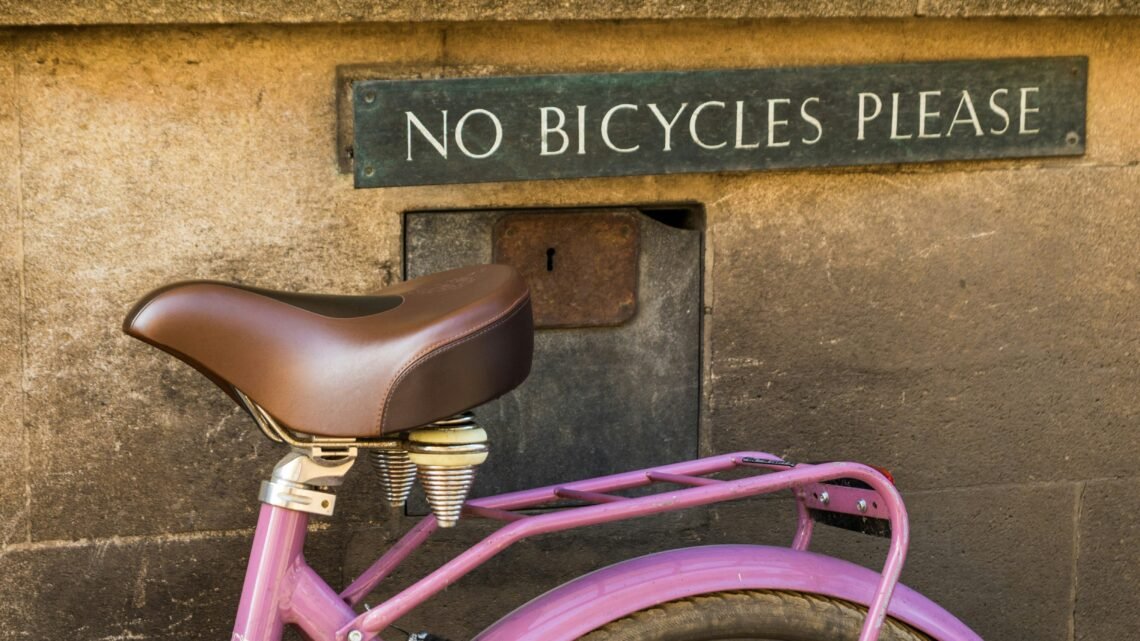
Bon Voyage, But Beware! Essential Local Customs and Laws for Savvy Travelers
Photo by Ian Barsby on Unsplash
The thrill of a new adventure, the promise of exotic flavors, the allure of cobblestone streets – travel broadens our horizons and nourishes our souls. But before you jet set off to that dream destination, brushing up on local customs and laws is essential. Understanding these dos and don’ts can prevent awkward situations, potential fines, or even worse, ruining your travel experience altogether. Here’s your one-stop guide to becoming a respectful and informed traveler:
1. Dress for Success (and Respect)
Clothing choices can be a landmine. While skimpy outfits might be perfectly acceptable at home, they could be offensive in more conservative cultures. Research appropriate attire for religious sites, government buildings, and even specific restaurants. Remember, it’s always better to err on the side of modesty.
Here are some countries with strict laws or local customs on acceptable ways of dress:
- Middle Eastern Countries: Countries like Saudi Arabia, Iran, Oman, and the United Arab Emirates have strict dress codes based on Islamic principles. Women should cover their shoulders, arms, and legs, often with loose-fitting clothing. Men should cover their knees and avoid sleeveless shirts.
- South Asian Countries: In countries like India, Sri Lanka, and Nepal, while there are no hard and fast laws, modesty is expected, especially at religious sites. Women should cover their shoulders and knees, and avoid overly revealing clothing. Men can generally wear shorts, but longer pants are more respectful.
- Southeast Asian Countries: While these countries are becoming more relaxed, Thailand, Cambodia, Laos, and Myanmar still value modesty, particularly in rural areas and religious sites. For both men and women, shoulders and knees should be covered. Opt for loose-fitting clothing over tight or revealing attire.
- African Countries: Dress codes in Africa can vary greatly depending on the country and region. However, in general, it’s advisable to dress modestly, especially in Zanzibar and more conservative areas. Opt for natural fabrics that are comfortable in warm weather.

Additional factors to consider:
- Religious Sites: Many religious sites around the world have specific dress codes. Make sure you research the requirements beforehand to ensure you’re appropriately attired. Headscarves for women and covered shoulders for both men and women are common requirements in some religions.
- Rural vs. Urban Areas: Dress codes tend to be more relaxed in major cities compared to rural areas. It’s always best to err on the side of caution and dress modestly, especially if unsure about local customs.
2. Public Displays of Affection (PDA)
Public displays of affection are a common sight in North America, but not everywhere. In some cultures, holding hands or a quick kiss might be acceptable, while others frown upon any public intimacy. Avoid putting yourself or your travel partner in an uncomfortable situation – a quick internet search can reveal local norms.
- Southeast Asian Countries: Countries like Thailand, Cambodia, Laos, and Myanmar tend to be more conservative regarding PDA. While displays of affection might be tolerated in major tourist areas, it’s best to avoid anything too passionate in public. Opt for respectful displays like holding hands or a quick peck on the cheek.
- East Asian Countries: Public displays of affection in East Asian countries can vary. In Japan and South Korea, PDA is generally not seen favorably, especially between younger people. A quick hug or holding hands might be acceptable, but avoid anything more intimate in public.
Remember: Even if PDA isn’t illegal, it’s important to be respectful of local customs. A simple internet search or consulting a travel guide can help you understand what’s considered appropriate in your destination country.
3. Tipping: A Global Conundrum
Tipping customs vary greatly around the world. In some countries, tipping is expected and a way of life for service staff. In others, it’s seen as an insult, implying the base wage is insufficient. Research tipping etiquette for your destination to avoid confusion and ensure fair treatment of service staff. Here’s some instances where tipping is expected. We’ve written this blog post that expands on the topic of tipping:

Countries Where Tipping is Expected:
- United States & Canada: Tipping is a significant part of a server’s income in these countries. The standard tip for restaurants is 15-20% of the bill before tax. Tip servers at bars and coffee shops too, though the percentage can be lower (10-15%). Taxi drivers also expect a 10-15% tip.
- Latin America: Tipping customs vary in Latin America, but a 10-15% tip is generally appreciated in restaurants. Some restaurants might already include a gratuity on the bill, so check carefully. Tipping taxi drivers and bellhops is also customary, with a few dollars being sufficient.
4. Photography Faux Pas
Snapping photos is a must for capturing travel memories. However, some cultures consider photographing religious sites, people, or specific objects disrespectful. Always be courteous and ask permission before pointing your lens.
5. Sacred Sites: Silence Speaks Volumes
Many religious sites have strict dress codes and specific rules regarding noise levels. Be mindful of your volume, silence your phone, and dress modestly to show respect for the sanctity of the space.
6. Laws of the Land
Ignorance of the law is no excuse, even abroad. Familiarize yourself with basic laws in your destination country. Be aware of drug regulations, restrictions on alcohol consumption, and any laws regarding littering or public behavior.
7. Respect the Rhythm of Life
Siesta time in Spain is a time to unwind, not sightsee. In some countries, businesses close midday for lunch breaks. Plan your itinerary around local customs to avoid disruptions and frustration.

Several European countries have restrictions on business hours on Sundays, with some having stricter limitations than others. Here’s a breakdown:
Countries with Full or Near-Full Sunday Closure:
- Austria: Most shops are closed on Sundays, with some exceptions like gas stations and convenience stores.
- Belgium: Large stores are typically closed on Sundays, with smaller shops having limited hours.
- Germany: Sunday closures vary by region, but most stores are closed. Some grocery stores might be open for a few hours in the morning.
- Norway: Most shops are closed on Sundays.
- Poland: Large shopping malls are generally closed on Sundays, with some exceptions like grocery stores (limited hours) and gas stations.
8. Haggling Like a Pro (or Not)
Bargaining is an art form in some cultures, while others operate on fixed prices. Learn about local customs before attempting to haggle. If unsure, a simple “what is your best price?” is often appropriate.
Also, be mindful of where you are. In some travel destinations, the local population is considered “poor” or “low-income”. While driving a hard bargain may give you a rush, consider this is their form of income to support themselves and their family. Pay what’s reasonable.
9. The Power of “No, Thank You”
Incessant hawkers can be a nuisance in some tourist areas. A polite but firm “no, thank you” is usually enough. Avoid getting caught in aggressive sales tactics or pressured purchases.
10. Be a Responsible Guest
Respect the local environment and cultural heritage. Dispose of trash properly, avoid littering, and be mindful of noise levels. Leave a positive footprint and contribute to sustainable tourism practices.
As an example, Japan has a strong cultural emphasis on cleanliness and personal responsibility. People are expected to carry their trash with them until they find a designated disposal bin. This not only keeps public spaces clean but also fosters a sense of community ownership over waste management.
By following these simple tips, you can navigate new cultures with confidence, ensuring a smooth, respectful, and enriching travel experience. Remember, a little research goes a long way! Now, pack your bags, embrace the adventure, and become a world-savvy traveler!

Bonus Tip
Download a trusted translation app to bridge any language gaps and navigate unfamiliar situations! If you have the latest model of a smartphone, a translation app usually is included or can be downloaded from the app store.
You should also learn a few key phrases to get you by. No worries! Passport to Palates has travel resources to help you navigate during your travels. We’ve launched with the 75+ Essential Travel Words & Phrases – Spanish, with more on the way. Check them out here!
Happy Travels…and try to stay out of jail.





